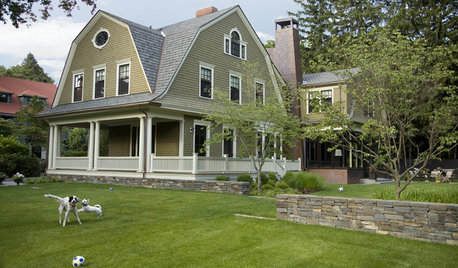Importing seed -- Phyto Sanitary Certificate
sigma
18 years ago
Related Stories

PETSSo You're Thinking About Getting a Dog
Prepare yourself for the realities of training, cost and the impact that lovable pooch might have on your house
Full StoryI have been searching for Marrow Stem Kale seed for well over a month. While I have found some sources in the UK, I hit a stone wall when I mention that a Phyto Sanitary Certificate is required by U.S. Customs to import seed
(unless you have a personal contact who will bookleg a pkg in a mail envelope -- I do not have one.)
I am still looking, most sources just do not reply, but if anyone has thoughts on this problem, please reply to my Email: sigma@ix.netcom.com as well as to this list.
many thanks,
Sigma


canadiantomato
sigmaOriginal Author
sigmaOriginal Author
canadiantomato
jacksonosborne